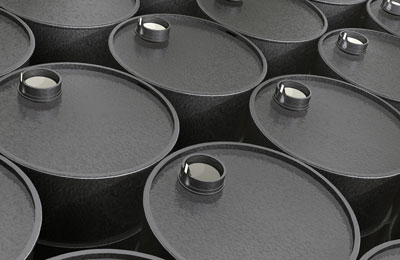
Saudi faces battle over oil market share
London, January 20, 2013
By John Kemp
Fracking and a global surge in offshore exploration pose the biggest challenge to Saudi Arabia's oil policy since the 1980s.
For Saudi policymakers, the question will be how to maintain market share and export revenues amid a host of competing supplies from shale and other unconventional deposits, offshore fields in Latin America and Africa, the Arctic, and rivals within Opec such as Iraq and Iran.
By the end of the decade, worldwide production of crude and condensates will hit 99.7 million barrels per day, according to a reference scenario published late last year by the Energy Information Administration (EIA).
Liquids production will be almost 7 million barrels per day (7 percent) higher than the EIA forecast just two years earlier in its 2011 reference scenario (Chart:).
Few analysts and commentators on the oil markets have yet appreciated the extent to which the outlook has changed in just five years. In 2008, most observers were worried about peaking oil production. Five years on, the problem is how to manage future abundance.
There is no reason to think 2020 demand will be 7 million barrels a day higher than was expected two years ago. The extra oil is almost as much as Saudi Arabia currently produces today. So prices will have to fall to stimulate faster consumption growth and discourage development of at least some rival sources of supply.
SQUABBLING OVER SHARE
The problem will be familiar to the Saudis. Throughout the 1960s and then again in the 1980s and much of the 1990s, the kingdom was locked in protracted disputes with the other big producers in the Middle East (Iran, Iraq and Kuwait) as well as with Venezuela and Russia over how to allocate market share and avoid overproduction.
In both cases, the kingdom experienced a painful crash in oil prices before the balance between supply and demand and stable market shares was restored.
History looks set to repeat itself. Saudi Arabia will be fighting on two fronts. It needs to restrict the amount of new production outside Opec, while agreeing how to share out production within the cartel with its principal rivals, Iraq and Iran.
Iraq had been pushed outside the market-sharing mechanism - Iraq by sanctions on former President Saddam Hussein and two wars with the United States and its allies. Iran now is effectively out due to US and EU sanctions.
Iraq is now busily raising its own output from the southern oilfields, while semi-independent Kurdistan is busy trying to find transit routes and takers for production from the north.
As for Iran, Saudi Arabia and its closest allies, Kuwait and the UAE, have effectively seized about 1 million barrels in market share as a result of sanctions. But at some point, once the standoff over the nuclear issue is resolved, those Iranian barrels will return.
PRICES WILL HAVE TO FALL
The challenge is how to share out production given the available demand. Saudi Arabia's giant conventional oilfields have some of the lowest production costs in the industry. But it would need to drive prices significantly lower to shut off rival sources of supply.
Continued drilling in the Bakken, Eagle Ford and other shale plays in the United States, coupled with dramatic improvements in efficiency, strongly suggests shale production is economic at prices well below $100 per barrel and possibly even below $80.
Deepwater and Arctic drilling, as well as exotic options such as gas to liquids, are more expensive and risky, but previous estimates by the International Energy Agency (IEA) and other forecasters put their breakeven points well below $100 per barrel. As the technology improves and drilling firms get more experience, costs are likely to fall further.
Saudi Arabia and the other big Opec producers have frozen the major oil companies out of their countries or set such stringent terms that the majors have declined to invest much. But that has encouraged the international oil companies and smaller independents to search for more hospitable parts of the world with more generous access terms.
To shut off some of the corporate cash flow supporting all this exploration and production activity, oil prices must fall or some other means must be found to discourage investment (perhaps a rise in either economic or oil price volatility).
Because on present trends the world will be awash in oil and condensates by the end of the decade. Sooner or later Saudi Arabia will have to accept lower prices, a reduction in its market share, or both. - Reuters







